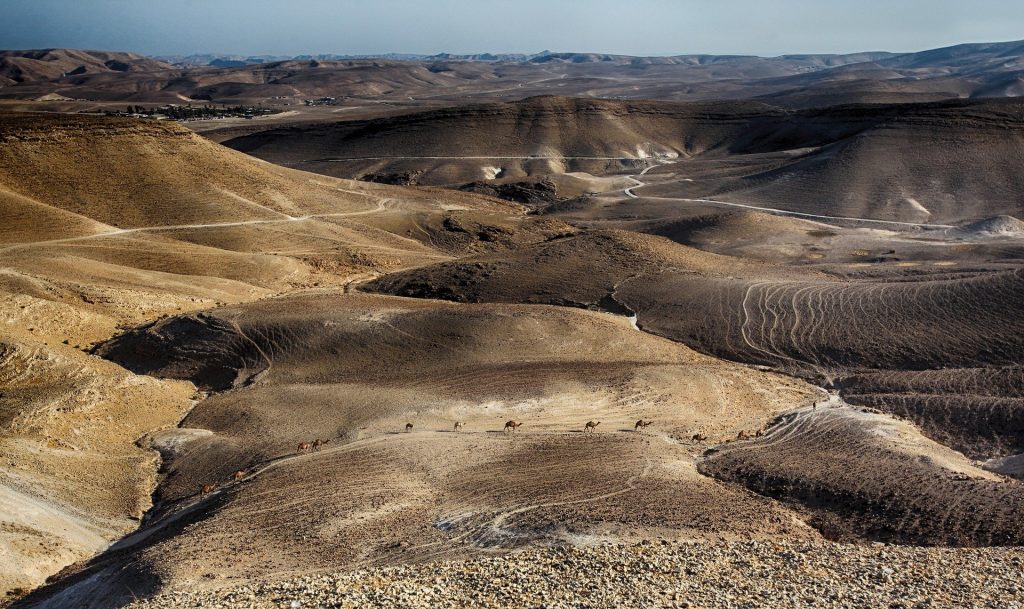
(5-6 Minute Read)
Genesis 18:1 – 22:24
The Torah portion of Vayera commences with the Almighty “appearing” to Abraham. Abraham greeted three guests and provided them with generous hospitality. One of the visitors declared, “I will return in one year, and Sarah shall have a son.” Sarah laughed because she and her husband were seemingly too old to have children. But the Most High stated, “Is anything too wondrous for me?”
The visitors departed towards Sodom and Gomorrah. Because Abraham had been singled out to be a great nation, and because he would instruct his children and descendants to keep the ways of the Most High, the Almighty disclosed his plans to Abraham. The Eternal One informed Abraham of pending catastrophic judgment against Sodom and Gomorrah. Abraham “bargained” with the Master of the Universe, asking if He would really destroy the righteous along with the wicked. Abraham first asked in regards to fifty righteous persons, then forty-five, forty, thirty, twenty, and even as few as ten. The Righteous Judge agreed that He would not destroy Sodom and Gomorrah, even for the sake of ten.
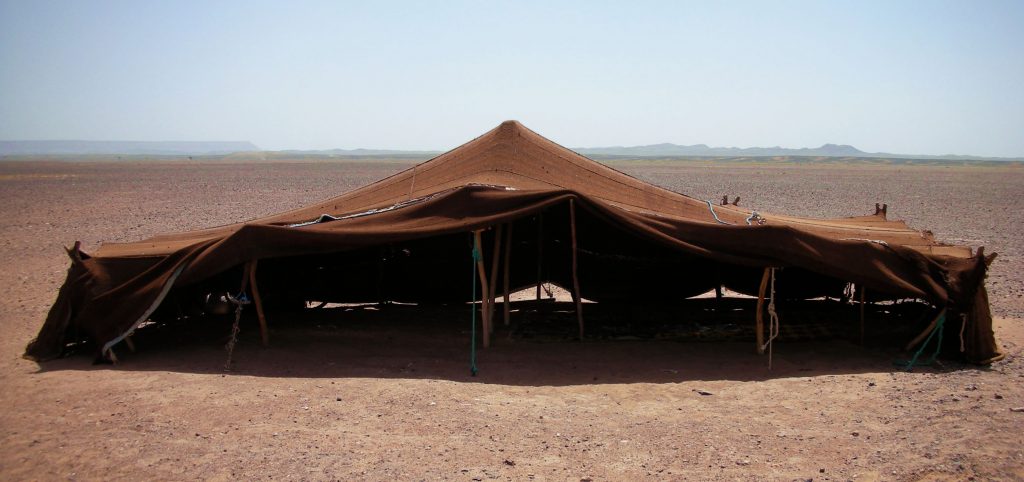
Two malakhim, or angels, arrived in Sodom in the evening. Lot, Abraham’s nephew, begged them to lodge with him in the city rather than the city square. The townspeople formed a mob around Lot’s house, clamoring to violate the two visitors. Lot pleaded with them not to, even offering them his two daughters to be violated instead. The residents of Sodom refused to be dissuaded, even after the malakhim struck them with a form of blindness so that they could not find the door.
The malakhim, or angels, instructed Lot to gather up his family and in-laws, and to depart with them before the pending destruction of the Righteous Judge. But they refused to heed him. Lot delayed, and the malakhim drug him, his wife, and his two daughters out of the city by their arms. They instructed Lot and his family to flee further, and not to stop or turn around in the plain, lest they be destroyed as well. As they departed, Lot’s wife turned around and was overtaken by the destruction, becoming a pillar of salt.
Lot and his two daughters ultimately hid and dwelt in a cave. Both of his daughters plied their father to drink heavily, and they became pregnant by incest. They later gave birth to two sons, Moab and Ben-ammi, the ancestors of the Moabites and Ammonites respectively.
Abraham journeyed to the Negev and sojourned in Gerar. He lied and told King Abimelech of Gerar that Sarah was his sister. He took Sarah into his home, but the Most High informed Abimelech in a dream that he had taken Sarah, who was already married; He told the king that he would die unless he returned her at once. Abimelech angrily confronted Abraham, who admitted his deception. Sarah was returned to Abraham along with gifts.
Sarah conceived and gave birth to a son, whom she named Yitzhak, or Isaac, based on the Hebrew word for laughter. Hagar and Ishmael harassed Abraham and Sarah’s young son. Sarah urged Abraham to send them both away, and the Almighty confirmed that this was the best course of action. Squandering their provisions, Hagar and Ishmael nearly died in the desert. The Most High “opened her eyes,” and she found a well of water providing for their survival.
There was a dispute over water after Abimelech’s servants had seized one of Abraham’s wells without the king’s knowledge. Abraham and Abimelech both made a pact and named the place Beer Sheva, meaning “well of the oath” in Hebrew.
The Eternal One tested Abraham, saying, “Take your beloved son, Isaac, to the land of Moriah and ‘elevate him’ as an offering to Me.”
Abraham dutifully obeyed. After a journey of three days, Abraham built an altar and prepared Isaac to be offered to the Most High. The malakh, or angel, of the Almighty prevented Abraham from killing Isaac, and praised him for his love and fear of the Eternal One. A ram was caught in a nearby thicket of bushes and offered instead. The Most High further blessed Abraham and his descendants, who would be as numerous as the stars of the sky and the sand of the sea.
Abraham returned to Beer Sheva. Some time later, he was informed that numerous children had been born to Nahor, Abraham’s brother, including the father of Rebekah, Isaac’s future wife.
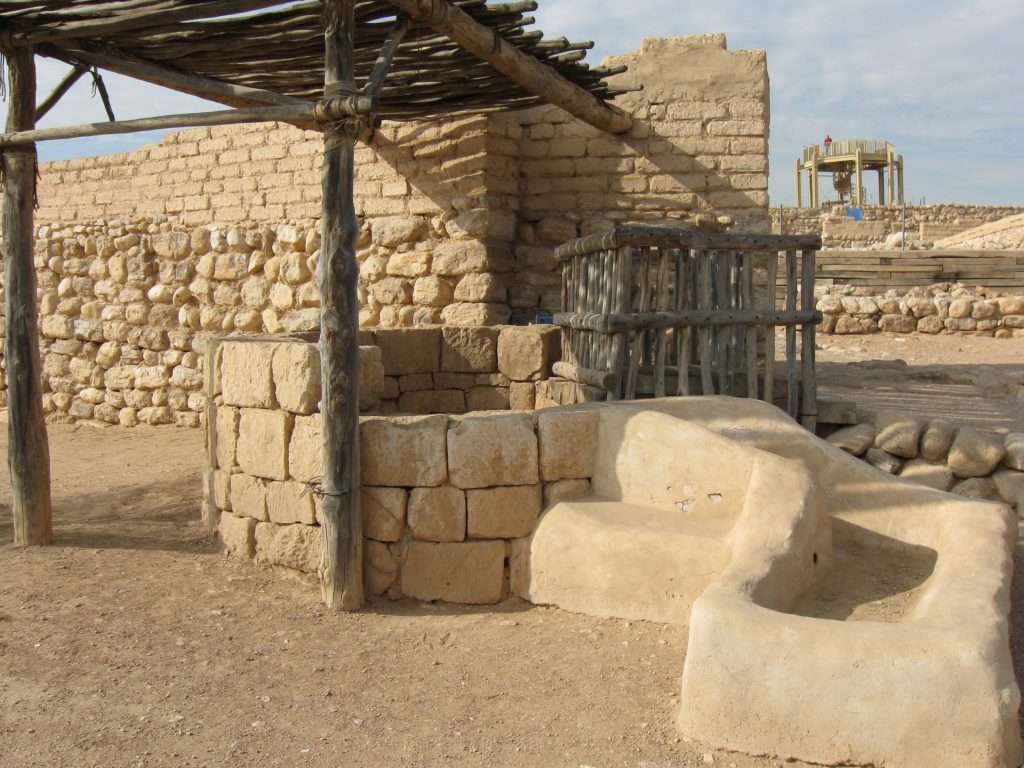
Vayera abounds with a plethora of fascinating Torah content worthy of further discussion and commentary. For now we will examine just a few key concepts.
The judgment process of the Most High is noted and discussed in detail. In Bereishit (Genesis) 18, we read that the Eternal One agreed that, as the Righteous Judge, He did not wish to destroy the righteous along with the wicked. The implication is that, in certain circumstances, the Almighty will delay His judgment against the wicked to protect the righteous who might be harmed as “collateral damage.” When the malakhim, or angels, of the Eternal One officially established that they could not locate even ten righteous persons in Sodom and Gomorrah, the Righteous Judge proceeded to destroy the cities, saving only Lot and certain members of his immediate family.
A comprehensive description of the Jewish view on how the Almighty judges the universe is far too lengthy to be discussed here. One important aspect relates to the timing of the judgment of the Eternal One. Frequently we are distraught that the punishment of the wicked seems to be extensively, even indefinitely, delayed. Job, for instance, complained in Job 21:7-8,
“Why do the wicked live, growing old and indeed also becoming powerful?… Their households are safe [peaceful] without fear; neither is the rod of G-d upon them.”
King Solomon of Israel similarly declared in Kohelet (Ecclesiastes) 8:11-13,
“[The] sentence against an evil work is not executed speedily, therefore the heart of the sons of men is fully set in them to do evil; because a sinner does evil a hundred times, and prolongs his days — though yet I know that it shall be well with them that fear G-d, that fear before Him; but it shall not be well with the wicked…”
Reading the parasha, or Torah portion, of Vayera, we can get a small glimpse into one aspect of the Most High’s judgment process. As noted in His conversation with Abraham, sometimes the judgment of the wicked is delayed because the Most High is both just and merciful simultaneously. In Jewish spirituality, these attributes are often referred to as din and chesed respectively. In order to show chesed, or merciful loving-kindness to the innocent and righteous, sometimes the Eternal One determines that it is prudent to delay din, including the punishment of the wicked. However, Vayera and other passages of the Torah and Tanakh clearly emphasize that the Most High does indeed perceive the cruelty and evil acts of the wicked. For instance, the Almighty commented that He had heard the outcry of innocent victims against Sodom and Gomorrah (Bereishit / Genesis 18:20-21). Similarly, King Solomon of Israel stated in Mishlei (Proverbs) 15:3,
“The eyes of the L-RD are in every place, keeping watch upon the evil and the good.”
In summary, the account of the judgment and destruction of Sodom and Gomorrah as well as the rescue of Lot teaches us that the Righteous Judge carefully monitors and scrutinizes all the deeds of man. And although it often seems from our perspective that the wicked inexplicably prosper, it is important to bear in mind that Divine Retribution and Judgement, even if delayed, is inevitable. And, as Solomon said, ultimately “all will be well with them that fear G-d.”
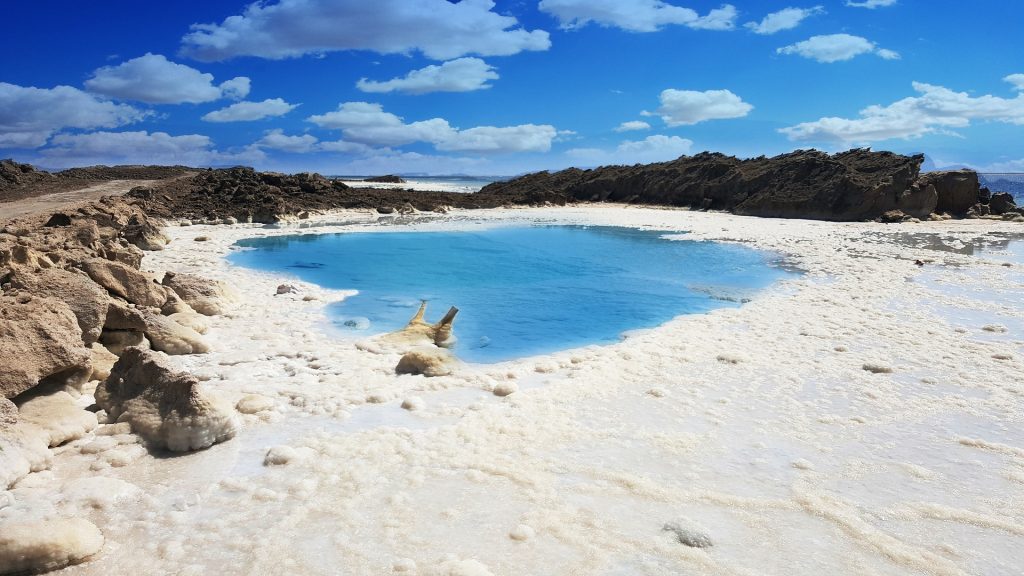
The Akeida, or the binding and near-sacrifice of Isaac, is one of the most paramount events in all of Judaism. Correspondingly, for some it is a bit troubling and even disturbing. After all, how can we as Jews accept the notion that the Almighty would issue such a seemingly heinous command, and then change His mind at the last minute? On the surface, such actions seemingly defy and contradict every other description throughout the Torah and Tanakh narrative of the righteous and unchanging Creator.
Many great chachamim, or rabbinical sages, such as Rashi, Rambam, RambaN, Abravanel, et al, have discussed and debated the account of the binding of Isaac at great length. Many modern Jewish scholars have likewise added their own thoughts and comments to millennia-old discussion.
One question is why the Most High would tell Abraham to “offer Isaac as a burnt offering” and then change His mind. One possible answer lies in the original Hebrew terminology. The exact phrase used is v’ha’alehu sham l’olah, or “elevate him there as an ascension.” In Hebrew the term olah is used generally as a standard word for an “ascension,” “elevation,” or “going up.” However, in certain contexts the term olah is used to define a burnt offering, since the smoke and odor of the offering “ascend” or “go up.”
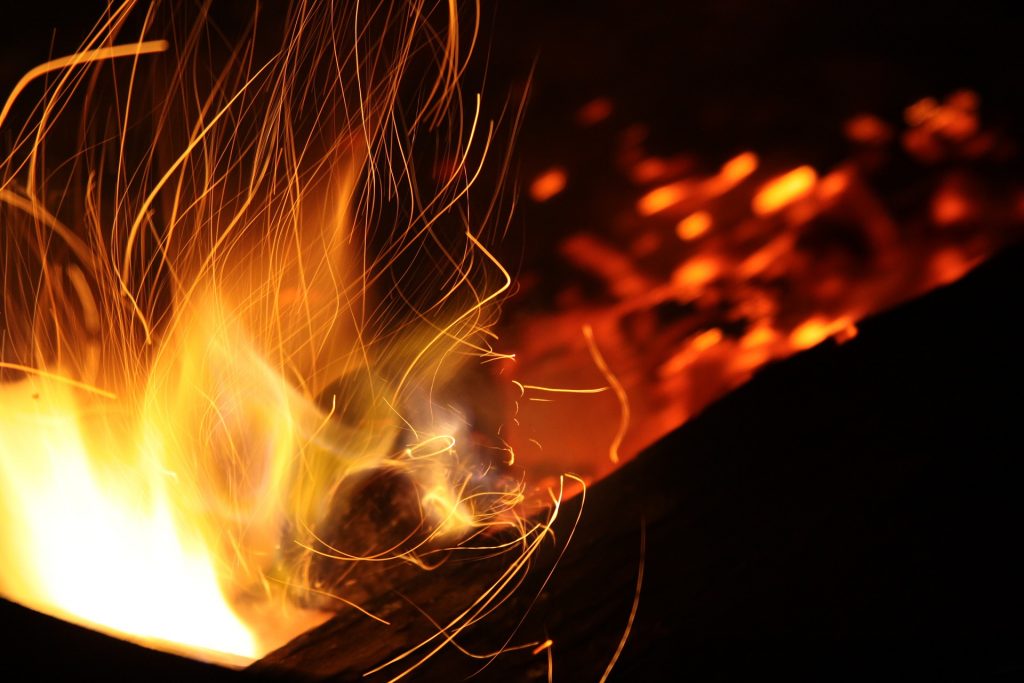
Following this analysis of the etymology of the original Hebrew, some have theorized that the Most High actually commanded Abraham to “elevate” his son for a “spiritual ascension.” However, the terminology was synonymous with sacrificing a burnt offering. In other words, the Most High did not lie or change His mind. Rather, He allowed Abraham to misunderstand His intention and later clarified what He meant. By allowing Abraham to misinterpret His command, the Most High thereby tested Abraham and proved how loyal he was to the Eternal One, and He still had the opportunity to prevent Isaac’s death. Similarly, we see the evidence of Isaac’s submission to the Master of the Universe. And it was through this overt display of such dedication to the Most High that Abraham secured even greater blessings for himself, Isaac, and their descendants, the entire Jewish people.
The account of the Akeida, the binding of Isaac, also teaches us a hard lesson, especially in light of the “etymological theory.” We learn the importance of submitting to the Most High and giving Him our “everything.” Abraham was in a great quandary. He knew that the Eternal One had promised to grant him countless descendants, but now he construed that the Almighty had commanded him to offer his only son as a burnt offering. What the Master of the Universe really desired was for Abraham to spiritually “elevate” Isaac by “giving him back” to Himself. Sometimes in our lives the Eternal One seeks for us to “give back” to Him those things that are most important to us. Indeed, much of Torah-based living involves “giving back” to the Most High. We are instructed to “give back” one day of the week, Shabbat, or Sabbath, to Him, and correspondingly with yom tov festival days. Similarly, we are commanded to “give back” ten percent of our “net harvest,” or income. The point is that in some cases the Holy One, blessed be He, has instructed us to “give back” something to Him. This “giving back” results in the spiritual “elevation” of our time, money, abilities, etc. And every time we obey this instruction to spiritually “elevate” something that seemingly belongs to us, especially when it is difficult to do so, blessings inevitably result.
Certain chachamim, or rabbinical sages, in the Talmud have identified Mount Moriah as the future location of the Beit HaMikdash, or Holy Temple. In line with this concept, we see that the binding of Isaac, including the loyalty of Abraham as well as the offering of the ram afterward, are inextricably linked to the avodah, the service and offerings of the future Beit HaMikdash, or Holy Temple. The offerings at the Beit HaMikdash, or Holy Temple, connect us as the Jewish people to the test and trial of Abraham where he proved his dedication to the Most High. And in present times without the Beit HaMikdash, or Holy Temple, our tefillot, or liturgical prayers, that reference the original offerings provide us with a similar connection to the righteousness of Abraham and Isaac.
May the Holy One, blessed be He, give us the patience and understanding to maintain our trust in the Most High as well as His Divine Judgement and Retribution, even when the punishment of the wicked is delayed in a manner that defies our reasoning. May the Eternal One grant us the fortitude to “give back” to Him of our assets and abilities as He requires, especially related to observance of His Torah. May the Holy One, blessed be He, ever link us to the dedication of Abraham and Isaac displayed at Mount Moriah. And may we thereby maintain His blessings to us as He promised Abraham Aveinu, “our father” and ancestor.

